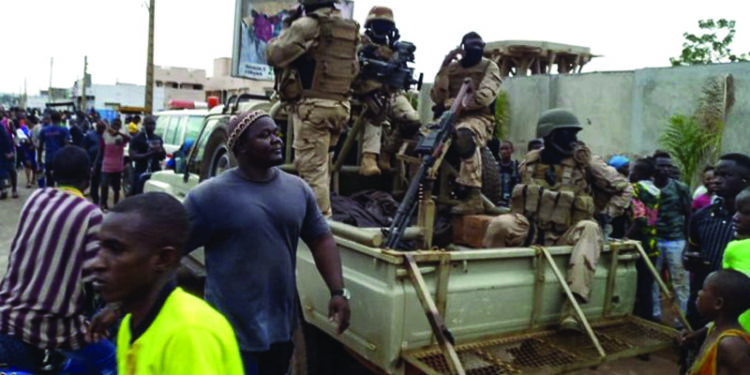NE NEWS SERVICE
BAMAKO, AUG 19
Malian President Ibrahim Boubacar Keita announced his resignation late Tuesday night on state television, hours after mutinous soldiers had fired shots into the air outside his home before detaining him. Later on, the President was arrested by its Military.
#Mali– Le président de la république arrêté et se trouve aux mains de l’armée. (mutins) pic.twitter.com/mrno9HHTgK
— Aboubacar Dicko (@AboubacarArdo) August 18, 2020
The dramatic development comes after more than two months of regular demonstrations calling for him to step down three years before his final term was due to end.
Speaking on national broadcaster ORTM, a distressed Keita wearing a mask amid the COVID-19 pandemic said his resignation was effective immediately. A banner across the bottom of the television screen referred to him as the “exiting president.”
Keita, who was democratically elected and re-elected, was left with few choices after the mutinous soldiers seized weapons from the armory in the garrison town of Kati and then advanced on the capital of Bamako.
Soldiers detained Mali’s president and Prime Minister Tuesday after surrounding a residence and firing into the air in an apparent coup attempt after several months of demonstrations calling for President Ibrahim Boubacar Keita’s ouster.
The soldiers moved freely through the streets of Bamako, making it increasingly clear that they were in control of the capital city. There was no immediate comment from the troops, who hailed from the same military barracks in Kati where an earlier coup originated more than eight years ago.
The upheaval unfolded months after disputed legislative elections, but Keita’s support also tumbled amid criticism of his government’s handling of an Islamic insurgency that has engulfed the country once praised as a model of democracy in the region.
The military has taken a beating over the past year from Islamic State and al-Qaida-linked groups. A wave of particularly deadly attacks in the north in 2019 prompted the government to close its most vulnerable outposts as part of a reorganisation aimed at stemming the losses.










